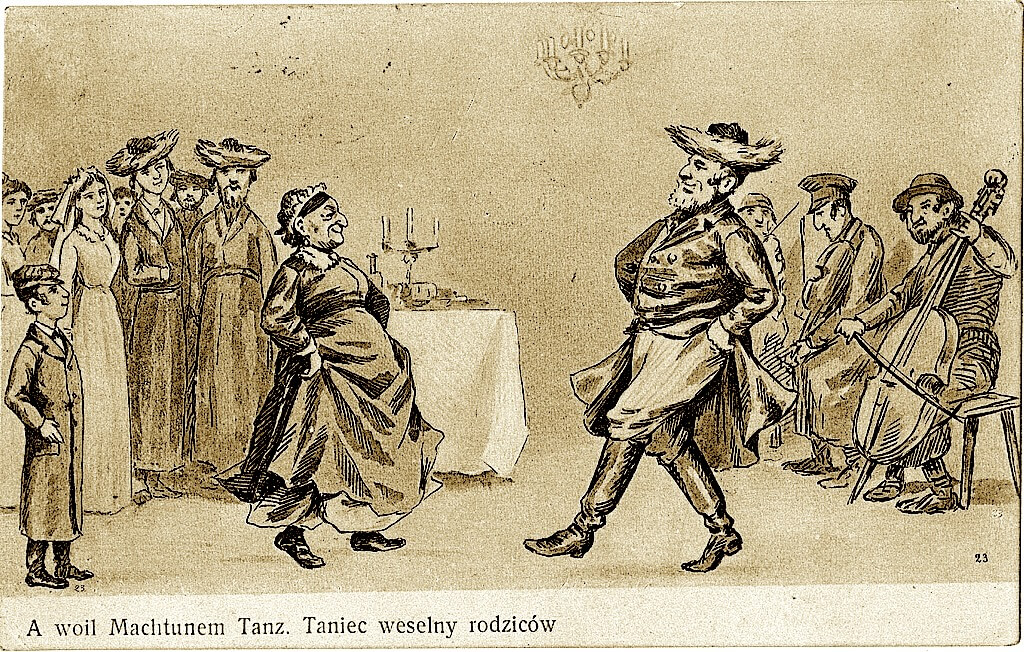Alan Dershowitz: The Constitutional Case Against Impeaching Trump

Image by Getty Images
The following is an excerpt from Alan Dershowitz’s forthcoming book, “The Case Against Impeaching Trump.”

On the basis of the constitutional text and the facts we currently have in the public record, the case against impeaching and removing President Trump is quite strong.
In my forthcoming book, “The Case Against Impeaching Trump,” I lay out arguments against charging President Trump with, or impeaching him for, obstruction of justice based on actions he took or may take that are authorized under Article II of the Constitution, which sets out the powers of the president as the head of the executive branch of our government. These include the power to fire members of the executive branch, such as the director of the FBI, for any or no reason.
They also include the power to pardon anyone for any or no reason. He may not, of course, solicit or receive a bribe for taking any such action. The very act of soliciting or accepting the bribe — for any reason — would be a crime. Nor could he lie to prosecutors, tell witnesses to lie, pay hush money to potential witnesses or destroy evidence — all of which President Nixon was accused of. (President Clinton, as well, was charged with lying under oath.)
But a president who does none of these things cannot, in my view, be charged with a crime for merely exercising his Article II powers to fire or pardon, regardless of his motive for doing so. Nor can his motives or state of mind in taking constitutionally authorized actions be questioned as part of a criminal or impeachment investigation. These restrictions do not place the president above the law, because they are required by the law, for the same reasons members of Congress and the judiciary cannot generally be charged or questioned for their legislative or judicial actions.
This is a controversial position, and I have been much criticized for taking it. But many commentators, who initially disagreed with this argument, are now assuming its validity and arguing that President Trump should be investigated for other misdeeds.
Even more controversial, but in my view equally correct, is my position that under our constitutional structure, the president, as head of our “unitary executive” branch, may direct the attorney general and the director of the FBI as to who and what to investigate and/or charge with crimes, as well as who not to investigate and charge with crimes. I do not personally approve of the president having such powers and I would favor a constitutional amendment limiting or even eliminating them. But I believe that the Constitution, as written and interpreted for generations, gives the president those powers and precludes him from being charged for exercising them — even for exercising them wrongly or in a self-serving manner.
There is a difference between what we believe the law should be, and what the law is, especially when it comes to charging a president with a crime or impeachable offense. I wrote about this problem during the impeachment of President Clinton:
The time has come to recognize that the framers of our Constitution made a serious mistake by creating the single office of attorney general to serve two conflicting functions. We must bring ourselves into the twenty-first century by breaking these two functions into two discrete offices, the way the rest of the democratic world has done. We can begin without tinkering with the Constitution, by simply having Congress create an Independent Office of Public Prosecution within the Justice Department. The director of that office would be a civil servant appointed for a fixed term by the president with the consent of the Senate. By tradition, that person would be outside of politics and an eminent lawyer of great renown and acceptability to both parties. He or she would not be answerable to the attorney general on issues of prosecutorial policy or on specific cases, and would be removable only for good cause.
It is not certain whether the Constitution would have to be amended to accomplish this change. Article II grants to the president the responsibility to “take care that the laws be faithfully executed,” but that responsibility may be delegated—as it has been—to the attorney general.
If Congress were to pass, and the president sign, a law creating a permanent, nonpartisan office of Director of Public Prosecutions, I believe it would be held constitutional.
If this legislative solution did not pass constitutional muster or did not work for other reasons, it might be necessary to amend the Constitution so as to create an independent prosecutorial office. The Constitution should never be amended except as a last resort, after all other reasonable legislative and administrative solutions have been tried. But the problems of our current Justice Department and its conflicting roles are so serious, and so likely to get even worse, that we must begin to consider new methods for dealing with them. <
But until the law is changed, a president should not be charged or impeached for exercising his current constitutional authority to direct the Justice Department or FBI who to investigate and who not to investigate.
What if President Trump were to be impeached for colluding with Russia during the presidential campaign? If there were proof of such collusion — and to date I have seen none — that would be a serious political sin. An American should not collude with a foreign power, especially a hostile foreign power, in an effort to enhance his candidacy.
But once again, there is a dispositive difference between a political sin and a high crime and misdemeanor. There is no such crime of collusion in the context of an election. Collusion may entail other crimes, such as election law violations or accessory to crimes such as hacking. But collusion itself is simply not a crime.
Consider the most extreme hypothetical: Assume, absurdly, that candidate Trump called Vladimir Putin and said the following: “Hey Vlad. Do I have a deal for you? I want to be elected president, and you want to get rid of the Magnitsky sanctions, which I don’t like anyway. You should help me get elected by giving me dirt you already have on Hillary Clinton because, if I’m elected, there’s a better chance to get rid of the sanctions, which I disapprove of.” Of course, no such conversation occurred and no such deal was made. But if it had been, one can search the federal criminal statutes for a crime that would cover this political sin. Politicians often seek contributions and support from individuals who expect to benefit from the election of their candidate.
There are, of course, limitations on what a foreign government can contribute to a campaign, but these limitations are vague and subject to constitutional scrutiny, especially in the context of information rather than cash. Perhaps some election laws could be stretched to fit this conduct, but such stretching would raise serious constitutional issues.
Obviously if one varies the facts a little bit, there would be a crime. For example, if a candidate asked Putin to get dirt on his opponent by hacking emails, that would be a crime. But merely passing along dirt that has already been obtained would not be. That is true even if the dirt had been obtained illegally through hacking. The person doing the hacking would be guilty of the crime, but the campaign would not be guilty for using the fruits of the hacking, any more than The New York Times and The Washington Post would be guilty of publishing the stolen Pentagon Papers or the materials stolen by Chelsea Manning and Edward Snowden. So, based on what we now know, it would seem clear that President Trump could not be charged criminally with colluding with Russia, even if there were evidence he did so.
But what if he were impeached for the political sin of colluding with a hostile foreign power? Such impeachment would raise the issue dramatically of whether Congress could go beyond the criteria for impeachment and removal. I think the answer is no, but there are those who disagree. This would be a good test case because, plainly, collusion with Russia would be a breach of the public trust and fulfill Hamilton’s criteria for impeachment (if Hamilton intended those criteria to be a substitute for, rather than an addition to, the enumerated criteria).
Or take a more extreme example. Assume Putin decides to “retake” Alaska, the way he “retook” Crimea. Assume further that a president allows him to do it, because he believed that Russia has a legitimate claim to “its” original territory. That would be terrible, but would it be impeachable? Not under the text of the Constitution. (It would, of course, be different if he did it because he was paid or extorted.) Such a dramatic event might appropriately result in a constitutional amendment broadening the criteria for impeachment, but it would not justify ignoring or defying the words of our current Constitution.
The framers of the Constitution did not provide an impeachment remedy for an incompetent, nasty, even tyrannical president — unless he committed a designated crime. Perhaps they should have, but Congress is not authorized to “correct” constitutional errors or omissions through unconstitutional actions in impeaching and removing a president who has not committed a designate crime. Perhaps the framers should have required a majority vote rather than a two-thirds vote to assure that a tyrannical president is removed. But the remedy lies in amending the Constitution, not violating it. The appropriate response to executive tyranny is not legislative tyranny.
As I write these words, more information seems to be emerging from both sides regarding improprieties during the campaign. I doubt we have heard the last of the allegations from either side. The bottom line is that the 2016 presidential campaign was deeply troubling for many reasons. That is why, from day one, I proposed that instead of appointing a special counsel to investigate crimes, Congress should have appointed a nonpartisan commission of experts to investigate the entirety of the 2016 election, including allegations of Russian interference, the impact of Comey’s ill-advised public statements, the bias of some FBI agents and other possible improprieties that do not rise to the level of indictable or impeachable crimes.
I continue to urge the appointment of such a commission, since many in the public are losing faith in the Mueller investigation and in the hyper-partisan congressional committee investigations. The public has the right to know everything that happened during the 2016 presidential campaign in order to prevent recurrence in future campaigns. A nonpartisan commission is a far better way to learn the whole truth than any of the investigations currently being conducted.
In making the case against impeaching President Trump, I do not mean to whitewash anyone’s conduct. I simply want to make sure that whatever actions are contemplated or taken are consistent with the United States Constitution, the rule of law and civil liberties. Unlike the political case against impeaching President Trump that James Comey is making — voting him out is more democratic than impeaching him — my case against impeaching President Trump is constitutional. There is simply no evidence in the public record that he has committed any of the crimes enumerated in the Constitution as a prerequisite for impeachment and removal.
I am not making the case for President Trump’s reelection. Every citizen must make that political decision for him or herself. I would be making the same case against impeachment had Hillary Clinton won and it was the Republicans who were urging her impeachment or prosecution for acts that did not constitute crimes. For me, the test has always been “the shoe on the other foot.” (This is a colloquial variant on John Rawls’ “veil of ignorance” test.) What criteria would you advocate if the shoe were on the other foot — if Hillary Clinton or Bernie Sanders had been elected and were being investigated? I insist that the criteria be the same.
Of course, partisans always argue that the shoe doesn’t fit: Partisan Democrats insist that Trump’s conduct is more impeachable than Clinton’s, and partisan Republicans think that Clinton’s is more impeachable than Trump’s. That’s not the point. The point is to agree on neutral criteria that would be equally applicable to all presidents.
I agree with James Comey that voting is more democratic than impeaching, but even if I didn’t — even if I thought that impeachment would better serve the interests of democracy — I would oppose President Trump’s impeachment unless the criteria explicitly enumerated in the Constitution were proved beyond a reasonable doubt, following an impeachment and trial at which all relevant substantive and procedural protections were accorded the president. No one is above the law, but neither is anyone — including the president — beneath the law.
If a controversial president is denied constitutional protections, then any citizen can be denied constitutional protections. That’s why this issue is so important to all Americans.
You can buy Alan Dershowitz’s latest book is “The Case Against Impeaching Trump” here.
A message from our Publisher & CEO Rachel Fishman Feddersen

I hope you appreciated this article. Before you go, I’d like to ask you to please support the Forward’s award-winning, nonprofit journalism during this critical time.
We’ve set a goal to raise $260,000 by December 31. That’s an ambitious goal, but one that will give us the resources we need to invest in the high quality news, opinion, analysis and cultural coverage that isn’t available anywhere else.
If you feel inspired to make an impact, now is the time to give something back. Join us as a member at your most generous level.
— Rachel Fishman Feddersen, Publisher and CEO






















